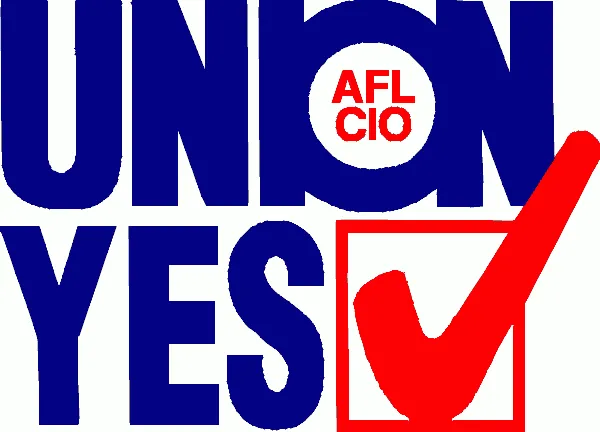Today's AFL-CIO press clips

IN THE STATES
Yamashita: Working families go beyond negotiation tables to secure democracy (Opinion)
Daily Independent
By Fred Yamashita
November 4, 2021
A strike database from Cornell University shows more than 250 strikes have taken place since the start of this year. All of these work stoppages are a testament to how critical of a time we are in to build a more equitable country. A country where our democracy is secured in the workplace, at the ballot box and where immigrants aren’t forced into the shadows but are given a clear path to citizenship. Workers cannot wait any longer. Sen. Kyrsten Sinema needs to pass the following key pieces of legislation for Arizonans.
JOINING TOGETHER
Fortune
By Josh Eidelson And Bloomberg
November 8, 2021
On Wednesday, the National Labor Relations Board will mail ballots to employees at three Starbucks Corp. coffee shops in and around Buffalo, New York, who will vote over the next four weeks on whether to establish the first-ever unionized locations among the chain’s thousands of corporate-run U.S. stores.
Worcester Business Journal
By Monica Benevides
November 8, 2021
With all of this attention on labor actions, Massachusetts AFL-CIO President Steven Tolman emphasized strikes are considered a last resort for union members. “Nobody wants to go on strike,” Tolman said.
Tolman, who is in his 11th year as president of labor organization, which is a national federation of labor unions maintaining state federations and local labor councils, said he’s hopeful increased support for unions, as well as national legislative efforts to codify increased organizing protections, like the proposed Protecting the Right to Organize Act of 2021 in Congress, which passed in the House earlier this year but not the Senate, will result in more workplaces organizing.
Wirecutter workers threaten a walkout during a peak shopping week over contract delays.
The New York Times
By Katie Robertson
November 8, 2021
Union members at Wirecutter, a product review website owned by The New York Times Company, said on Monday that they were prepared to stop work during the busy shopping period around Black Friday if a deal for a contract was not reached. Staff at Wirecutter unionized in 2019, and the Times Company voluntarily recognized the union. In the two years since, the union has been negotiating with the company for a collective bargaining agreement.
Thousands of SoCal pharmacy workers set strike date against Kaiser Permanente
KTLA
By Tony Kurzweil
November 8, 2021
Thousands of Kaiser Permanente pharmacy workers from San Diego to Kern counties have set a strike date to walk off the job at more than 100 Southern California locations. The United Food and Commercial Workers (UFCW) union issued the 10-day strike notice Monday amid what they described as stalled negotiations and low-ball contract offers. “For almost two years, we’ve been highly exposed to COVID-19 while we care for our patients,” said Tracy Cason, a pharmacy employee at Kaiser Permanente Baldwin Hills. ”We are ready to strike. Whatever it takes to win, we will do it for Kaiser to hear our voices.”
Harvard Graduate Student Union Threatens Another Strike Beginning Nov. 16
The Harvard Crimson
By Cara J. Chang and Meimei Xu
November 9, 2021
Just 10 days after its last strike, Harvard’s graduate student union announced a new strike deadline Monday — if the University does not address its “unfair labor practices” and offer an “acceptable deal” by Nov. 16, student workers will go on a “strike of undetermined length.”
UNION BUSTING
Starbucks Seeks to Delay Union Election as Vote Nears
The New York Times
By Noam Scheiber
November 8, 2021
The union filed a charge with the National Labor Relations Board last week accusing the company of unlawfully “engaging in a campaign of threats, intimidation, surveillance, solicitation of grievances and the closing of facilities” during the election campaign. On Saturday afternoon, Starbucks closed stores in the area so workers could attend a talk by Howard Schultz, the company’s largest individual shareholder and its former chief executive, at a local hotel. Attendance at the session was voluntary, and Mr. Schultz did not mention the union campaign explicitly. But according to a transcript provided by Starbucks, he appeared to allude to the unionization effort repeatedly.